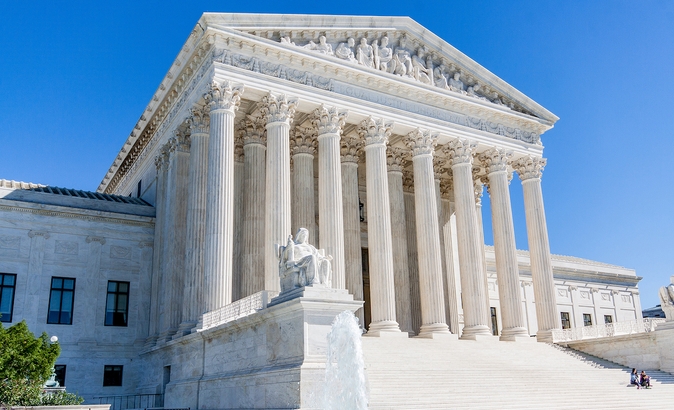June 29, 2023
The Supreme Court has erred grievously in overturning decades of precedent that has affirmed the legality and value of race-conscious admissions practices. Today’s rulings present yet another obstacle for students seeking equitable access to the opportunities that a college degree offers, such as higher earnings and lower rates of unemployment. The rulings challenge institutions’ autonomy to operate in the way they choose. They will make it more difficult for all students to benefit from the educational excellence that results from diverse learning environments.
We don’t yet fully know or understand the implications of these rulings, though we can gain clues from how public institutions in the nine states that have already banned race-conscious admissions practices have since struggled to enroll students from racially diverse backgrounds. After race-neutral measures were mandated in California through Proposition 209, the percentage of admitted and enrolled first-year students at the highly selective UCLA and UC Berkeley from underrepresented racial backgrounds was halved. In the years after Proposal 2 was adopted in Michigan in 2006, the University of Michigan took extraordinary measures (as detailed in their amicus brief to the Supreme Court) to try and achieve a diverse student body with race-neutral measures. Nevertheless, by 2021, enrollment of Black undergraduates had declined by 44% from its 2006 level. A 2023 report by the National Academies of Sciences, Engineering and Medicine further illustrates the lack of progress that has been made to boost enrollment of and degree attainment for students from underrepresented racial backgrounds in STEM fields.
What is currently clear is that our society will suffer, including from the trickle-down effect these rulings will have on our workforce. We all lose when our doctors don’t reflect the diversity of the communities in which they practice; when our AI tools are built by engineers who do not have personal experience with the ways in which those systems perpetuate racial bias; when our children are sent to schools full of teachers who do not look like them; when our laws are drafted and enacted by elected officials who do not represent the backgrounds of their constituents.
The court has turned its back on broad support for race-conscious admissions policies. More than 60 amicus briefs were filed by not only higher education institutions and associations, but state attorneys general, the military, civil rights organizations, and top corporations across the country. NADOHE joined the amicus brief filed by the American Council on Education, along with 38 other higher education associations. A recent Associated Press-NORC Center for Public Affairs Research poll found 63% of U.S. adults believe colleges should be allowed to consider race in admissions decisions.
Even under this new landscape, NADOHE will continue to do the work to advance diversity, equity, inclusion, and justice on college and university campuses. We will not rest, nor will we accept today’s rulings as the end of the road for race-conscious admissions practices. Congress must now act on legislative solutions to ensure institutions can continue to foster diverse educational environments. We must scrutinize the pathways into our institutions and the campus climates that await students once they enroll. And we must renew our efforts to ensure that all students feel valued and welcomed in their learning environments.
To our members: Know that resources are available to you now and in the near future as you navigate the coming months with your institutions. We encourage you to explore our website for webinars and information on the various amicus briefs that have been filed in these cases. We will continue to update the website with additional resources, such as a resource guide from the American Council on Education and PEN America that provides information on academic freedom and institutional autonomy, and a report by the Georgetown University Center on Education and the Workforce that examines six admissions models and their possible effects on enrollment of a diverse student body.
Read more from President Paulette Granberry Russell on the rulings.
###
The National Association of Diversity Officers in Higher Education (NADOHE) is the preeminent voice for chief diversity officers. As the leader of the national conversation on diversity, equity, and inclusion, it investigates, influences, and innovates to transform higher education so that inclusive excellence lives at its core.

